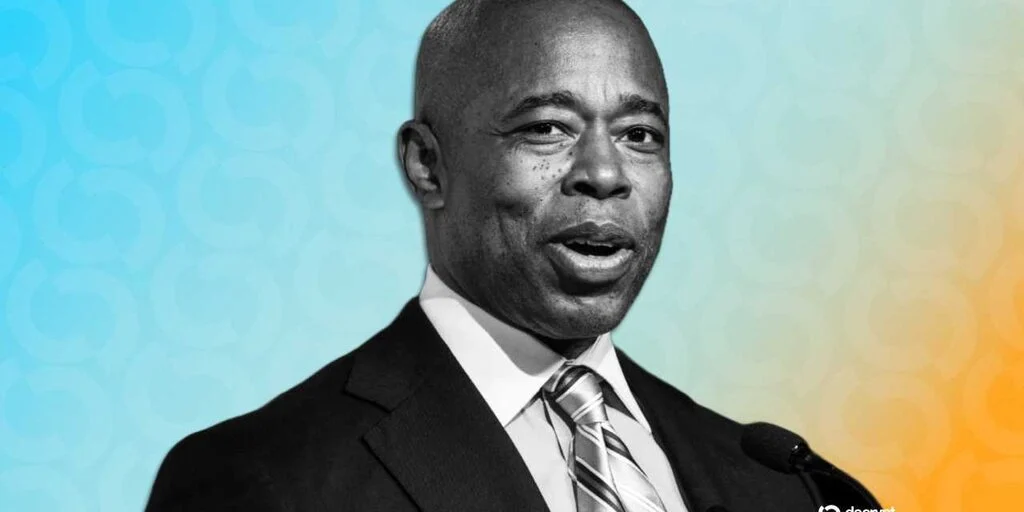
Eric Adams, mayor of New York City, ended his reelection campaign Sunday evening after a term marked by both controversy and his stature as one of the country’s most visible crypto-friendly politicians.
Over the course of his tenure, the self-described ‘Bitcoin Mayor’ had made crypto a key component of his public image: from taking paychecks in Bitcoin three years ago, to calling for the removal of the city’s BitLicense requirements, as well as pitching ways to make New York the “crypto capital” of the world. He also supported integrating blockchain technology into city systems from education to record-keeping.
Yet his efforts often stalled it the face of regulatory limits and political controversies. Almost a year ago, Adams was indicted on federal criminal charges with allegations of his connection to illegal foreign donations for his campaign.
“[…] some remain unsure of me after the unfortunate events surrounding my federal case,” Adams said at one point in his announcement video. “I was wrongfully charged because I fought for this city.”
Crypto’s shifting political tides
While Adams’ exit was shaped by legal battles and low polling, observers say the decision also shows the difficulty of using digital assets as a plank for political identity.
“Adams’ departure is largely symbolic. New York loses a visible crypto advocate, but the industry’s political traction has already been shifting toward states like Texas, Wyoming, and Florida where pro-innovation policies are taking hold,” Mayuko Hamazaki, principal at Willspire Capital, told Decrypt.
Adams’ withdrawal from the mayoral race “reflects his own controversies more than crypto itself,” Hamazaki added. “Politicians can still align with digital assets effectively, but success depends on broader credibility and policy agendas, not just a crypto-friendly stance.”
Others pointed to the crypto industry’s broader inroads into national policy.
“This is a New York story, not a crypto story,” Matt Mudano, co-founder and CEO of Bitcoin-native platform Arch Network, told Decrypt.
While Adams’ was “a loud supporter of crypto adoption,” his withdrawal “had more to do with his own personal controversies and doesn’t change the underlying trend: crypto is becoming more mainstream in U.S. policy,” Mudano said, adding that with “sustained, bipartisan work on broader market rules,” the wider perception of the crypto industry will be shaped by “national wins, not one mayoral race.”



